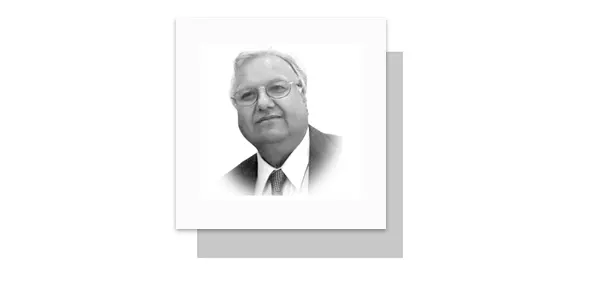A painful incident has diverted our attention from the complex situation in Pakistan to Iran. Just a few days ago, President Ebrahim Raisi visited Pakistan. During his visit, we observed both his smiles and his seriousness. His personality was indeed extraordinary.
Welcoming him and his delegation, Prime Minister Shehbaz Sharif recited Persian poetry. He mentioned the Margalla Hills and Mount Damavand of Tehran. Hearing these words, his spontaneous smile was genuine, reflecting his transparent personality. He spent two days in Pakistan and visited three of its cities. He participated in bilateral talks in Islamabad, met with religious scholars and intellectuals’ groups. The next morning, he arrived in Lahore, where he paid homage at the mausoleum of Allama Iqbal and presented his respects. On the same day, he arrived in Karachi. There, he paid his respects at the mausoleum of the founder of Pakistan, Quaid-e-Azam Muhammad Ali Jinnah and held meetings with important personalities. He spent 48 hours in continuous activity in Pakistan. His engagements were further enriched by the First Lady’s activities.
At the level of state visits, there is usually a formal quality, but this tour was different and enthusiastic in every respect. Visits to the mausoleums of Pakistan’s founders, interactions at the grassroots level and tours of three universities in Pakistan by the Iranian First Lady made it even more enthusiastic and meaningful.
A few years ago, President Hassan Rouhani visited Pakistan. Several factors affected that visit negatively, notably India’s involvement, whose spy’s capture cast a shadow over the visit. Before President Raisi’s arrival, attacks by Revolutionary Guards on Pakistan and subsequent events had soured the atmosphere. The decision to visit Pakistan in such circumstances was extraordinary. It indicates that President Raisi was willing to face challenges and had the extraordinary ability to solve issues with his wisdom. He wanted to initiate a new beginning between the two neighbouring brotherly countries; his visit to Pakistan hinted that he wanted to leave behind that unpleasant past which would result in a reduction in issues faced by the people of both countries and enable them to prosper. His last visit was also of the same kind that risked his life. Relations with Azerbaijan have also been strained, but he initiated a joint project with this neighbouring country, marking a new beginning. Such decisions by President Raisi’s will surely strengthen his prominent position in history.
President Ibrahim Raisi was often seen as rigid due to his past, but his efforts to normalize relations with neighbouring countries negate that impression. It seems that his policies were flexible. He was capable of assessing situations and had the ability to change his country. These qualities might have led to him being seen as Ayatollah Khamenei’s successor. His death is undoubtedly a great tragedy for the Iranian nation and a misfortune for the region.
The scenes of the meeting with him in a hotel in Islamabad are still fresh in my mind. Some enthusiastic people surrounded him, shook hands, took selfies and expressed their love. Neither did his presidential security become active, nor did he become disturbed by their presence. He maintained his smile, responding to the love of his admirers with affection. President Raisi’s demeanour indicates that he intends to make a new history by leaving the past behind. It was this enthusiasm and sincerity that made his visit to Pakistan memorable. Will his policy be sustainable? Will his successor continue the policy of improving relations, especially with Pakistan? These questions are crucial. They relate not only to Iran’s economic future but also to its relations with its neighbours. This estimate can be made after the election of his successor, but in my opinion, there is something more important. The important thing is whether there is anything for us to learn from post-Raisi Iran?
What was the cause of this incident that shook Iran like an earthquake? As it is said, was there really a conspiracy behind it? Investigations will reveal this, but the important thing is Iran’s system. A major incident occurred immediately after the 1979 revolution, there was a major incident. An explosion had taken the lives of important cabinet and members of parliament. It was a unique event in history. It was equivalent to depriving the state of its head. Even in such a big incident, Iran managed to maintain its composure and in just a few days, elected a new parliament and new leadership, keeping the revolution safe. It should not be forgotten that this incident occurred at a time when Iran was engaged in war with Iraq. The recent incident is similar to that, because the date of the next presidential elections has been announced before the burial of the deceased. The indications are that like in the past, Iran will succeed in dealing with the challenge this time as well.
This incident reflects the strength of a 45-years-old system, and it is evident that Iran is safe despite all kinds of challenges. In comparison, our situation is different. Pakistan has turned 76 years old. Its constitution was drafted fifty years ago, yet the country still lacks stability. There is evident discord among institutions, causing concern among the people about the future. When we look towards Iran and assess our own situation, the difference is clear. This is the lesson we need to learn.
—The writer is contributing columnist.










